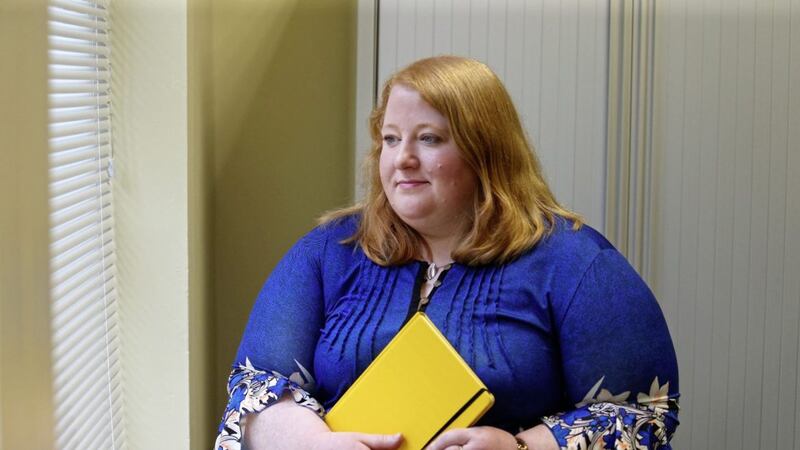If, as some nationalists suggest, the answer to our increasing sectarian division is the rise of moderate unionism, is there also a case to be made for a more moderate form of nationalism?
The question arises as we head into an uncertain summer, faced with the sectarian consequences of the Irish Sea border, demands for a (land) border poll, a growing sense of unionist grievance and a stand-off between the British and Irish governments.
With an assembly election just a year from now, we are approaching a particularly challenging period, leaving our urgent social and economic problems unaddressed. So what are the chances of some political moderation? The answer lies in the performance and potential of what are regarded as our three moderate political parties: Alliance, Ulster Unionists and the SDLP.
All three have poor electoral records. Alliance has done best, most recently capturing a seat in both the European Parliament (temporarily) and Westminster and it increased its share of the poll in every local government area in 2019.
The SDLP’s local government support has fallen in six successive elections to just 12 per cent in 2019, even behind the UUP’s 14 per cent. Compared to a Stormont election 50 years ago, Alliance support is unchanged, the SDLP vote has fallen by half and the UUP’s is now a quarter of what it was.
While the most recent LucidTalk poll puts support for the SDLP at 13 per cent and the UUP at 12, Alliance is up to 18, just one point behind the DUP. On paper at least, moderate unionism (in the form of Alliance, but not the UUP) is making some progress.
So why is Alliance doing better in opinion polls than the UUP and SDLP? The answer lies in three inter-related factors: sectarianism, circumstances and uncertainty.
The UUP and SDLP are prisoners of sectarian electioneering, which is hardly surprising since our political institutions are built on it, our local government boundaries are based on it and our much proclaimed peace settlement is ingrained with it.
Because both parties are the poor relations on either side of sectarian divide, they cannot stray far from the hardline attitude of the two dominant parties. So they usually swim in the slipstream of their bigger associates, rather than challenge them.
Thus the UUP has not attacked the DUP’s post-Brexit polices in creating the Irish Sea border, nor its inconsistency in engaging with north-south bodies. Similarly the SDLP has failed to make a much bigger issue of Sinn Féin’s possible breach of the north’s data protection legislation, through gathering personal details from Facebook, and operating some of its Facebook accounts from Serbia, as well as Germany.
The specific circumstances of Brexit have made sectarianism worse. When it comes to arguments over the EU, there are no moderates. Indeed, the SDLP has probably been even more hardline than SF in attacking the DUP.
In punishing Britain for Brexit, Dublin and Brussels have enhanced sectarian division here. Boris Johnson’s dishonest encouragement of the unionist intransigence has made things worse. Since sectarian division is now being fostered at international level, where is the scope for moderate politics locally?
Finally, uncertainty over the next year’s events discourages the SDLP and UUP from putting their heads above the pre-election parapets. They reason that whatever you say, say nothing, to avoid upsetting their electorate’s sectarian expectations.
Alliance, of course, has none of these problems. It can say what it wants. Whether its moderate approach translates into assembly votes remains to be seen. If it does, it would represent a small shift towards moderate unionism. Unless there is a similar shift in nationalism, the two extremes will continue to dominate, leading our children down the blind alley of rival triumphalism.
So, you ask, what hope is there for moderate politics here? The answer is very little. You see, the parties will not change until the voters change - and what are the chances of that?









